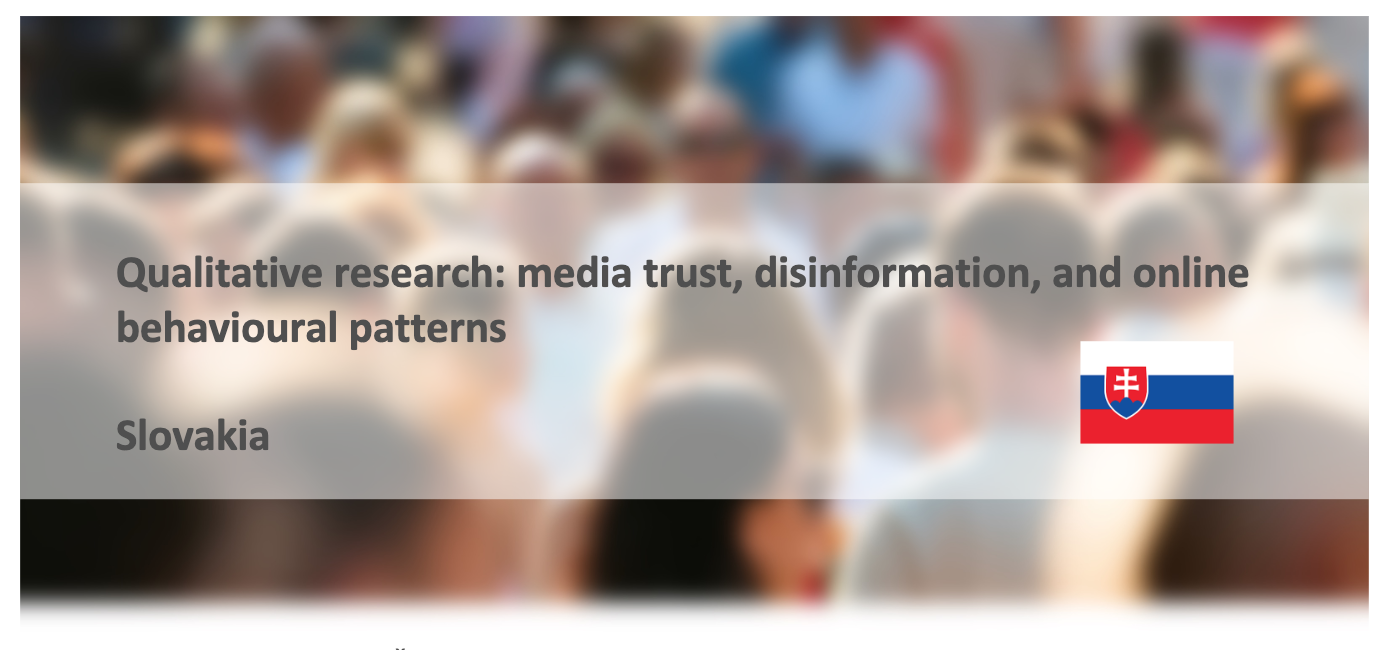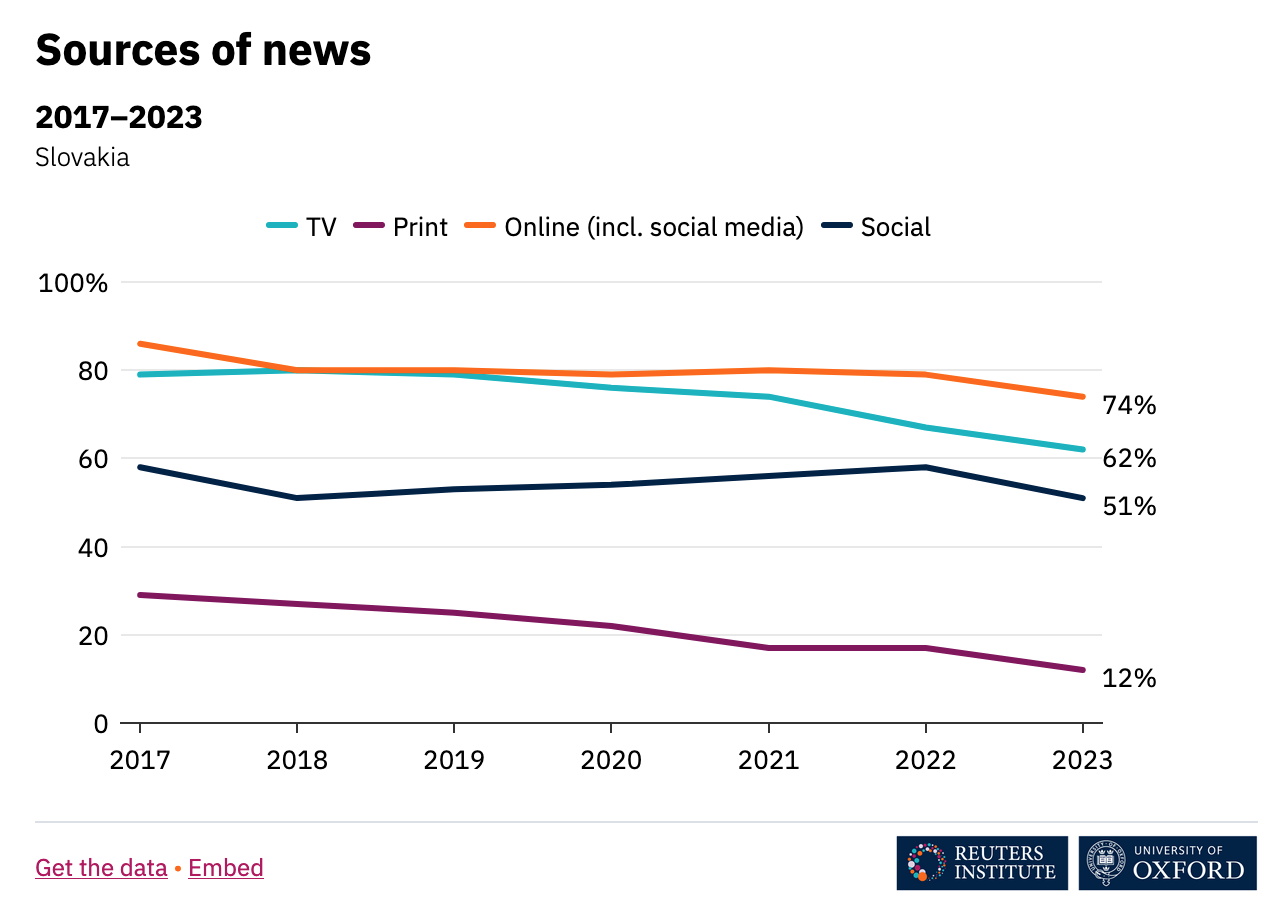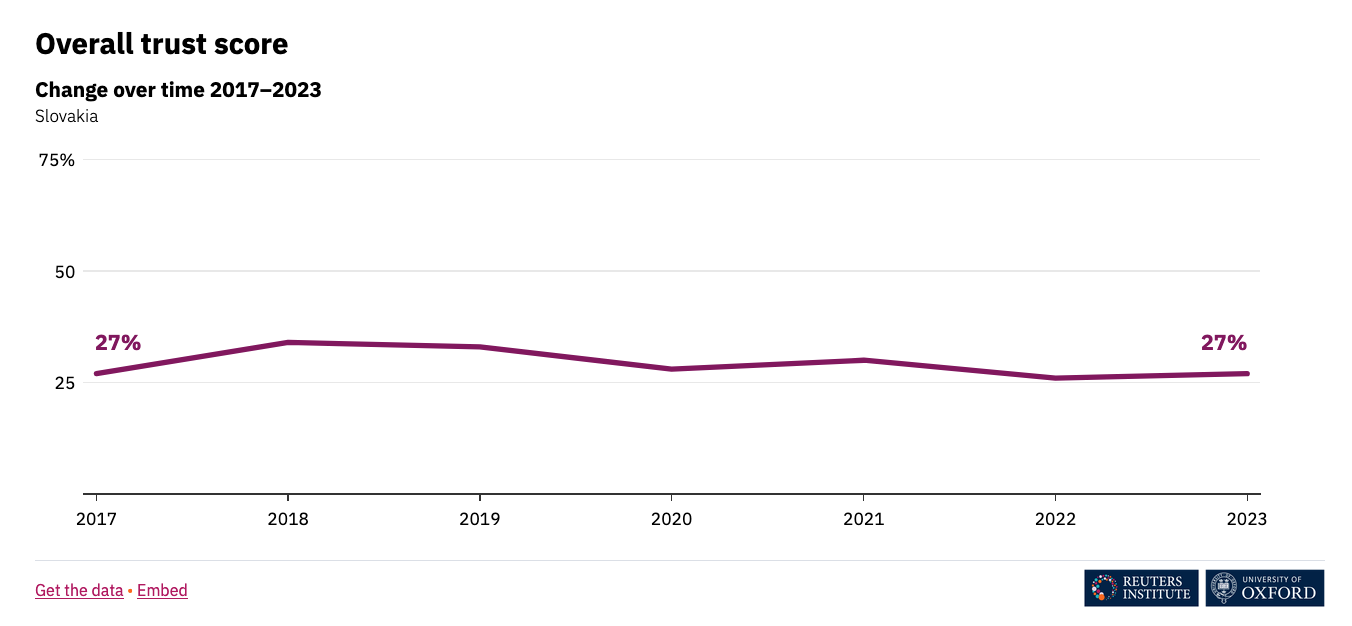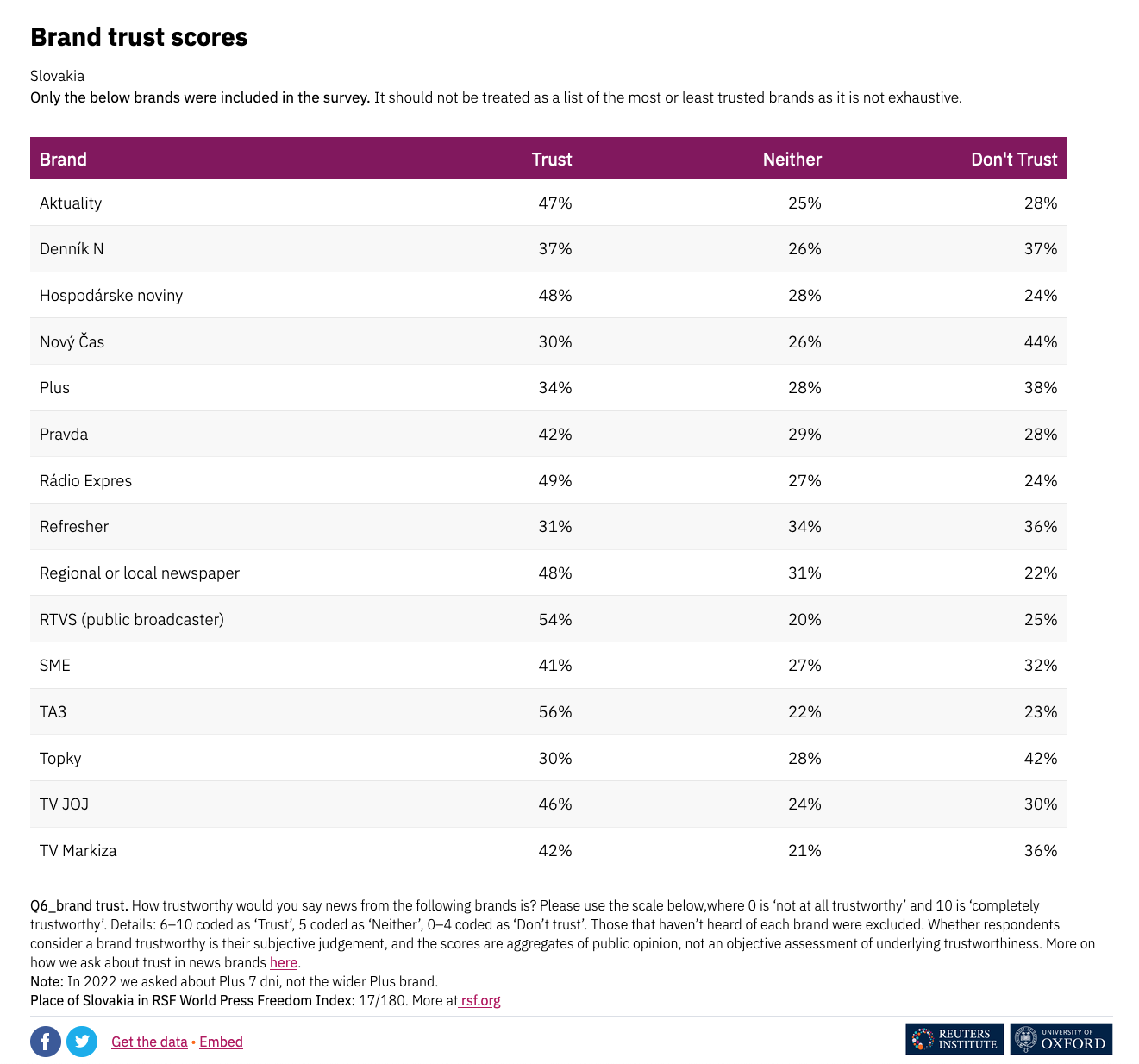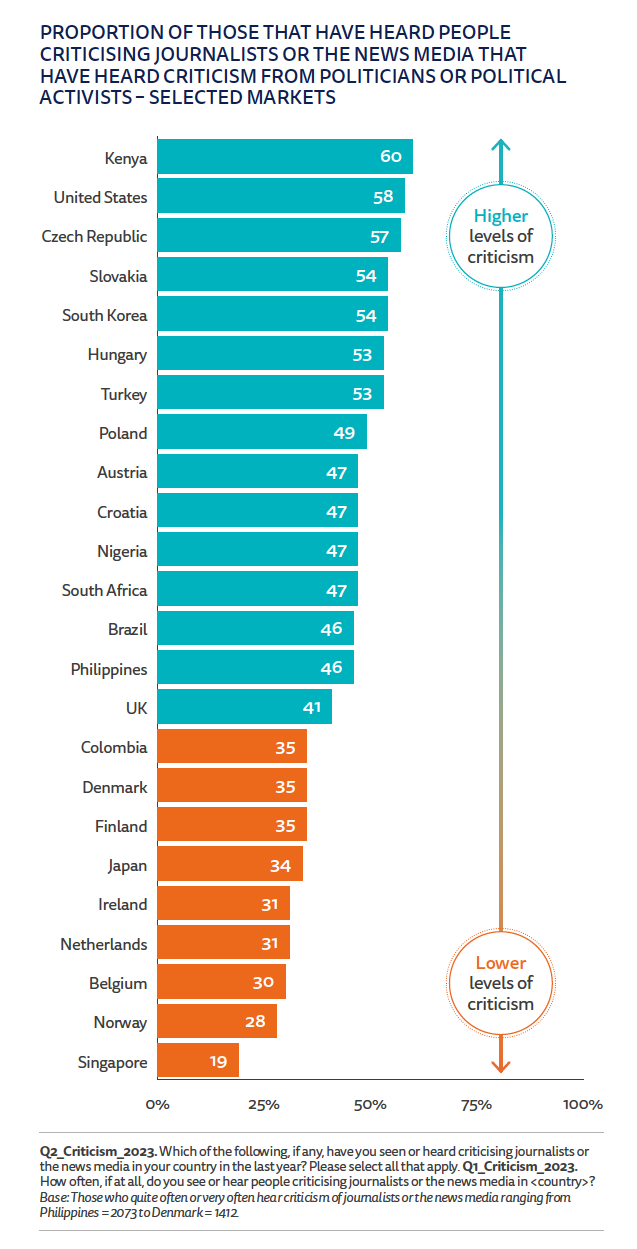News avoidanceThe choice of topics in the media is criticized by the respondents. They say that Slovak media pay too much attention to politics and current events, such as political scandals and international conflicts, which can lead to audience fatigue. When respondents were using their daily diaries, much of the media coverage was not about the news as such. By far the largest number of messages took the form of lightweight and often tabloid topics - articles about celebrities, cooking, or shopping were quite popular as these topics are tied to positive feelings such as amusement or joy. Within this context, respondents are overwhelmed by the issue of the Russian war in Ukraine. They follow the information only marginally or not at all - especially at the diary stage, when they were not influenced by other opinions, they said that they deliberately did not follow the news. The reason of avoidance was that they perceived the conflict as a local issue that did not concern them and did not affect them. They do not see any change in the development of the conflict and are therefore not interested in further information. While it was noted that Ukraine is the victim, there was no particular interest in news about the specific fate of Ukrainian refugees, what for example, is one of the differences between data from Slovakia and Czech Republic, where these stories seem to resonate much stronger. With an overabundance of political news, there is a lack of positive news, especially local news, that gives people hope, shows positive examples in society and motivates people to engage in useful activities - such as people volunteering to repair monuments, or helping the nature. Information that would help respondents in some way to deal with specific life situations (e.g. dealing with the authorities, financial literacy) would also be welcome. It was expressed that they would be interested in more information that affects them personally at the expense of world news. Topics that would relate to their region or interests. There is a differences when it comes to the topics that interest them personally. For topics that are close to their hearts they seek out information, while other topics are deliberately ignored and avoided. Fertile grounds for misinformationThe societal division is evaluated very sceptically. A feature of Slovak society for a long time, but the increasing polarization is quite clearly a consequence of the pandemic period. Aside of negative effect of politicians’ role, aggressive communication, typical for social media discourse, and the information disorder – the increased availability of information and difficulties to navigate within - also contribute to the division. Many people do not feel that their views are represented and therefore tend to resort to more extreme, or simplistic views. Most respondents gave examples of people in their environment being influenced by false or misleading information. In a very proper observation, the problem of misinformation is a problem for the whole world. Looking for reasons why public mistakes, professional and ethical failures in a form of misinformation or deliberately distorted information (disinformation) find such fertile ground in Slovakia belong to a national folklore for years – rather unsuccessful. According to the respondents, the reasons for being exposed to misinformation can by an average and below-average education as well as the lack of value-based historical heritage - Slovakia has never been a power, lacks a pro-freedom legacy that would form a healthy self-esteem. Additionally, frustration with a living situation that does not go as expected, where dissatisfaction with own life and economic situation provokes anger. People look for the culprit and as a result, they are easily influenced by any self-proclaimed prophets preaching the simple answers. Individual media literacy One of key findings, perhaps encouraging for some, is a self-belief of the„moving middle“ that can navigate in the information disorder on their own – there is a clear emphasis on individualism in verifying information in response to distrust of institutions and media. Participants prefer solutions where each individual is responsible for verifying information. Respondents also agree on the need to combat the spread of misinformation. They feel, however, much less certain what should be a practical solution to this generational challenge. While they would welcome some kind of legal framework and punishment for spreading disinformation, they are not clear about enforcement. Delegating the fight against disinformation to a specific institution creates mistrust. They do not want to leave the role of deciding what is true and what is false to anyone else. The establishment of a specific institution to debunk disinformation is seen by some respondents as a sign of a totalitarian regime.
At the same time, there is a commonly shared need to cultivate critical thinking and increase media literacy. Most respondents evaluated positively the idea of fact-checking – with a notable surprise that this kind of activity exists. However, thoughts about the limited impact, concerning the scale of a problem, were highlighted, with a notion that this task should be perhaps delegated to some institution. These efforts, in turn, run up against a lack of trust in institutions. What next? Light is here, not at the end of a tunnelDespite the many negative signs mentioned and the growing distrust of traditional media, data undoubtedly offers some hope. And that is the direction to look in. There is a degree of confidence in their own ability to judge the credibility of news - default skepticism, critical thinking and comparing different sources appear to be common habits of media consumption within the “the movable middle” already now. Still, while individually often on a right track, reinforcement, guidance and systematic enhancing activities (trainings, applications) are highly desired and sought for.

Živé.sk (zive.aktuality.sk) - Training materials concerning AI-generated content
Respondents acknowledge that spreading misinformation is dangerous. It can cause confusion among people, but it can also provoke hatred, conflicts, disrupt family relations, and influence the political situation. This seemingly obvious notion is important. Strengthening media literacy is highly desirable. At the same time, however, it is necessary to look for an appropriate form of education that can capture their attention. Any campaign or discussion about media literacy in Slovakia should be framed as an effort to help individuals critically evaluate the media content for themselves rather than a prescription for all. Such an approach might avoid backlash, misunderstanding and reluctance. An open discussion in the media and elsewhere about the future of the information world, freedom of expression vs democracy challenges posed by the deceptive content as well as the benefits and risks of AI applications could contribute to a more realistic view. It is appropriate to listen to specific calls for more positive news in the media. Not news that merely distracts and entertains, but news that gives hope that there are positive examples and stories.
For more information, please contact the SCIENCE+ coordinator for the Czech Republic, Jaroslav Valůch at jaroslav@fpee.eu
| 
